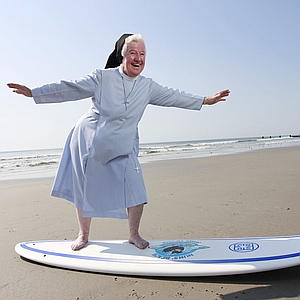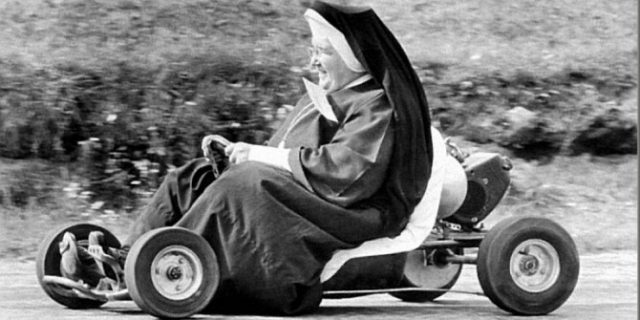Do you keep losing your keys? Are words staying on the tip of your tongue a few moments longer than they used to? Should you be concerned?
A recent study suggests that people with type 2 diabetes may suffer from brain loss in some important parts of the brain. However, there are many studies that describe protective activities, or even generative activities, that is, activities that increase the number of brain cells and neuronal (brain cell) connections (synapses).
Brain Power
A notable example is The Nun Study that suggests that positive changes in lifestyle might help to maintain your cognitive abilities. The Nun Study is a longitudinal study started in 1986. A group of nuns took a battery of cognitive tests on a yearly basis. They also donated their brains to science.
The Nun Study confirms the importance of being physically active as you age. Physical activity, like walking four times a week, improves blood flow to all of the body, including the brain. Being physically active has been shown to increase the blood flowing to your hippocampus, the area of the brain that is responsible for memory. In fact in one study of older adults who participated in aerobic fitness training, compared to older adults doing nonaerobic (like stretching and toning), there was a significant increase in volume of both gray and white matter for those undergoing aerobic training.
matter for those undergoing aerobic training.
The Nun Study had other interesting ideas for staving off brain matter loss. For example, folic acid intake may help. Since stress may have a negative impact on the brain, the findings of the nun study suggest that positive emotions and the social support of a community may be beneficial.
Flexibility
And we always hear about the developing child’s brain, its flexibility and ability to learn easily. It turns out that the adult brain also has neural stem cells and is able to generate new neurons throughout life. Again, the nuns who showed loss of gray matter but not loss in cognitive function, demonstrated early language ability and kept on learning throughout life, doing puzzles, actively reading and making efforts to continue using their brains.
In September 2013, Nature magazine published research that supports the suggestion that video games can improve cognitive functions for older adults. Using a custom-designed video game called “NeuroRacer” in what they called multitasking mode, the study was composed of 60 to 85 year olds who played the game, a similar group that didn’t and a comparison group of untrained 20-year-olds. The trained group of 60 to 85 year olds achieved levels of “cognitive control” above those of the untrained 60 to 85 year old and even above those of the untrained 20 year olds. The trained 60 to 85 year old group experienced benefits in attention and working memory that persisted 6 months later.
 So, it’s time to take more courses, read more actively, play more scrabble, try more crossword puzzles, take more walks and engage your children or others in video games. Or you could be like the surfing nuns of NJ who may not really surf, but sure know how to have a good time….All to keep your brain healthy! With that much fun, who wouldn’t have positive outlook on life?
So, it’s time to take more courses, read more actively, play more scrabble, try more crossword puzzles, take more walks and engage your children or others in video games. Or you could be like the surfing nuns of NJ who may not really surf, but sure know how to have a good time….All to keep your brain healthy! With that much fun, who wouldn’t have positive outlook on life?






Gaming has proven itself to be one of the best entertainment therapies. Not only that, but it also develops many useful skills and reflexes in the human brain. The nuns’ society is just another area where gaming is becoming part of everyday activities.